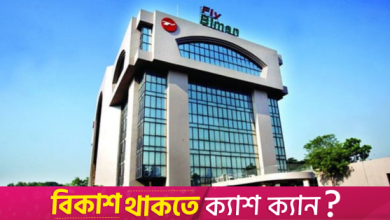BPC looks at pvt banks to pay for fuel imports as govt banks are in dollar dearth


The Bangladesh Petroleum Corporation (BPC) wants to resume opening letters of credit through private banks to import fuel oil as the Bangladesh Bank has stopped supplying dollars since mid-May to settle its import liabilities.
A senior official of the lone state-owned fuel oil importer told TBS that the central bank is holding on to dollars as it is struggling to meet the conditions of the International Monetary Fund (IMF) to maintain minimum forex reserves.
The corporation, which imports oil worth $7 billion annually, opens import LCs through government-owned banks – mostly through Sonali Bank.
The central bank has instructed Sonali, Janata, Agrani, and Rupali banks to arrange the supply of dollars for the BPC. However, these banks are unable to ensure enough dollars.
According to Energy Division officials, on 10-12 June, the BPC requested $25 million each day, but it received less than half of its daily demand.
As a result, the BPC is unable to pay the import bills to foreign suppliers on time, and as of 13 June, its overdue debt to its foreign suppliers amounted to approximately $250 million.
Agrani Bank Chairman Zaid Bakht, however, does not think the state-owned banks are unable to handle the situation.
“If a national institution imports through private banks, it will reduce pressure on the state-owned banks. However, no such circumstances have arisen that the state-owned banks are unable to handle government imports,” he told TBS.
“Until the start of the Russia-Ukraine war, we did not need foreign currency from the Bangladesh Bank for this purpose. But since the onset of the war, reduced foreign currency earnings and increased expenses have necessitated some assistance from the central bank.”
BPC turns to private banks
The BPC in a report, published in the media in September 2023, said private banks do not want to open LCs for fuel imports due to the dollar crisis. It also said One Bank, Islami Bank Bangladesh, Eastern Bank, Standard Chartered Bank, and HSBC used to open LCs in the past but have stopped from doing it for around two years.
The corporation has now held discussions with at least these five private banks to open LCs through them, officials familiar with the matter have told TBS.
Considering this situation, the BPC has taken the initiative to open LCs for importing fuel oil through private banks, according to the officials. It is hoped that LCs will be opened through private banks alongside the government banks in July, an official said.
The private banks are expected to show interest in LC opening as the dollar crisis has eased slightly, he said.
“We have taken initiatives to settle import liabilities from multiple sources. Relying solely on state-owned banks places pressure on one or two banks. Often, it becomes challenging to pay the suppliers on time, which discourages them from supplying products and also negatively impacts the country’s rating in the international market,” Energy Secretary Md Nurul Alam told TBS.
To overcome the situation, discussions are underway to import fuel oil through several strong private banks, he said. “This will slightly increase costs, but it will prevent undue pressure on any single bank and ensure timely payment of import liabilities. The BPC does not have a shortage of funds. However, despite having money, foreign currency is not always available.”
He added, “Our main goal is to ensure energy security.”
BPC forced to cut imports
The BPC imports about five lakh tonnes of refined and crude fuel oil through 16 to 17 cargoes each month. The corporation is expected to import approximately 60 lakh tonnes of fuel oil in 2024.
A BPC official, however, said due to Bangladesh Bank’s suspension of dollar supply the state-run oil importer is being compelled to reduce imports. The corporation requested suppliers to deliver two cargoes of oil in July instead of June, the official said.
Although the price of fuel oil in the international market has dipped, Bangladesh is unable to take advantage of the opportunity to stockpile fuel oil due to the dollar shortage while many other countries are increasing their fuel reserves.
“Due to the dollar shortage, the BPC is now attempting to manage the situation by importing as little as possible, resulting in lower inventory levels at the corporation,” the official said, wishing not to be named.
BPC Director of Operations and Planning Anupam Barua, however, said, “Whatever the import situation may be, there are no issues with supply. Stocks are also sufficient.”
Dollar crunch puts Cenbank in a tight corner
Bangladesh is obtaining a $4.7 billion loan from the IMF in seven instalments, subject to the implementation progress of several conditions. The IMF assesses the implementation of these conditions before granting each instalment.
A delegation from the IMF visited Bangladesh in late April ahead of the disbursement of the third instalment next month.
The IMF delegation particularly scrutinised Bangladesh’s foreign currency reserves. According to the IMF conditions, Bangladesh is supposed to maintain forex reserves of $20.19 billion by the end of June.
As the Bangladesh Bank expressed its inability to achieve the target, the IMF revised down the target to $14.75 billion.
The central bank decided not to supply dollars to meet the needs of the state and private banks for now as it prioritises building reserves given that achieving the revised forex target by the end of June is challenging, Bangladesh Bank officials said.



